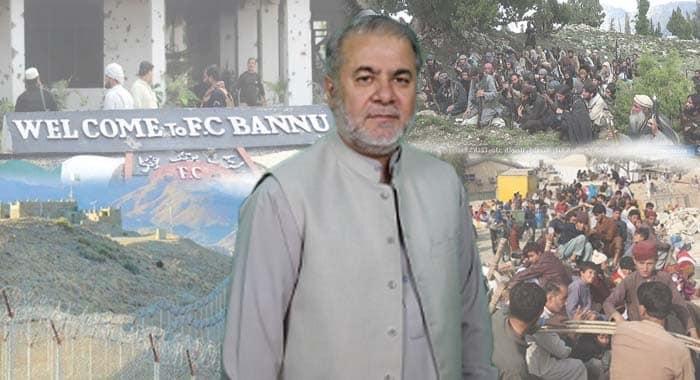The recent suicide assault on a Frontier Corps camp in Bannu is a sobering reminder that Pakistan’s western frontier remains exposed. Four attackers blew up the gate, killed sentries, and engaged security forces for almost 24 hours before being neutralized. Evidence indicates the assailants were Afghan nationals, underlining a long-standing Pakistani concern: territory across the border is still being exploited for violence inside Pakistan.
This is not an isolated episode. Early suicide strikes in Bara, Khyber, similarly involved Afghan bombers. Only weeks ago, eighteen militants were killed while attempting to infiltrate Balochistan’s Zhob district; bodies lay unclaimed for days before Afghan officials, after jirga-level talks, collected the remains. The pattern is unmistakable: outlawed outfits, particularly the Tehreek-e-Taliban Pakistan (TTP), continue to enjoy space and shelter in Afghanistan despite repeated assurances that Afghan soil will not threaten neighbors.
Diplomatic Assurances vs. Ground Reality
Under the Doha Agreement, the Afghan Taliban pledged the international community that Afghan territory would never again host actors targeting other states. Yet, nearly three years into their rule, Pakistan continues to face cross-border infiltration. Either the Taliban leadership lacks capacity to rein in militant factions or there exists strategic ambivalence over TTP cadres operating freely. Whatever the reason, Pakistan cannot ignore the mounting cost in lives, resources and public confidence.
Pakistan’s Multilayered Response
Islamabad has pursued diplomatic outreach, briefing friendly capitals, presenting dossiers, and warning Kabul that persistent sanctuaries are unacceptable. It has also strengthened border management, erecting a fence along most of the Durand Line, launching intelligence-based operations (IBOs) and counter-terror raids. Even so, the vast, mountainous terrain of South and North Waziristan, Kurram, Bajaur, Mohmand, Orakzai and Khyber allows militants to exploit gaps and local networks.
Pakistan’s security institutions: Army, Frontier Corps, Frontier Constabulary, police, remain robust, but geography alone renders a purely kinetic strategy insufficient. It is impossible to post enough troops to seal every ridge and ravine; infrastructure deficits, neglected for decades, leave swathes of ex-FATA unpoliced and under-developed, an environment militants can exploit.
Political Neglect Fuels Vulnerability
For nearly a decade, successive governments have failed to deliver sustained governance, services and investment in the merged districts. Instead of serious policy, there has been complacency, politicized postings and empty slogans. Without functional roads, schools, hospitals and credible administration, counter-terrorism victories remain temporary. The current provincial setup seems content to shift blame rather than marshal resources. Security vacuum and public frustration invite militant exploitation and erode national credibility.
External Agendas Cannot Be Ignored
Pakistan has repeatedly highlighted Indian interference, exemplified by the arrest of Kulbhushan Jadhav, and continues to suspect that hostile intelligence networks exploit Afghan soil to destabilize western Pakistan. While hard proof is shared with partners, regional geopolitics limits robust third-party intervention. As history shows, no nation will defend another; Pakistan alone bears the ultimate responsibility to safeguard its citizens.
Afghan Refugee Complexity
The repatriation of Afghan nationals, particularly those without documentation, was inevitable yet politically fraught. For over four decades, millions have resided in Pakistan, producing two or three generations. Islamabad’s phased plan prioritizes undocumented migrants before addressing Afghan Citizen Card or PoR holders. Implementation varies by province: Punjab and Islamabad apply stricter checks, whereas Khyber Pakhtunkhwa remains lenient, inadvertently drawing refugees from elsewhere. Pakistan faces criticism abroad, but policymakers argue Afghanistan now enjoys relative peace, making voluntary return feasible. Poor communication and political point-scoring, however, have muddied a necessary yet delicate policy.
Charting a Realistic Path Forward
Pakistan cannot rely on sporadic raids or diplomatic appeals alone. Sustainable security demands:
Structured engagement with Kabul, backed by verifiable benchmarks on dismantling TTP sanctuaries.
Accelerated socio-economic integration of the merged districts; roads, policing, education, health, to deny militants community space.
Clear refugee policy grounded in law, humanitarian principles and border control to prevent misuse of undocumented flows.
National consensus beyond party lines; tribal belt security is a national, not provincial, challenge.
Absent this, recurrent attacks will sap morale, invite external interference, and tarnish Pakistan’s standing. Militancy does not pause for political wrangling; resilience requires strategy, resources and political will. Failure risks undoing decades of counter-terror gains and endangering the federation itself.





